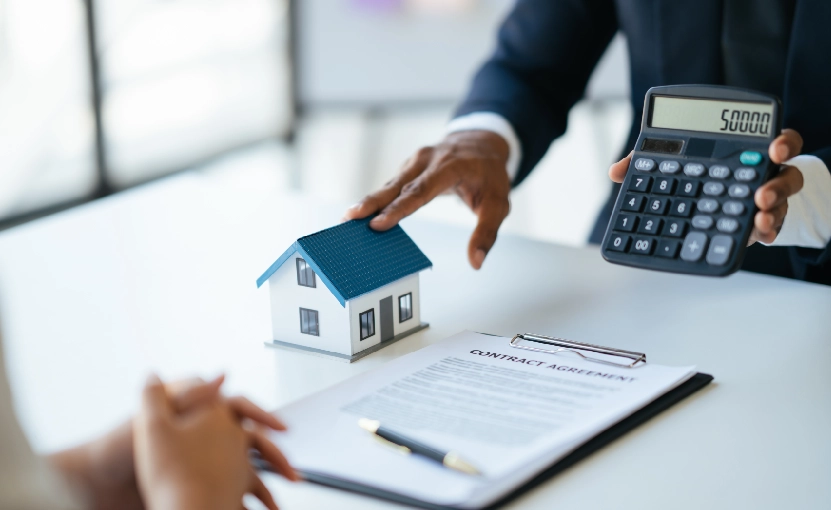Reverse Mortgages
Your Reverse Mortgage Provider In Indiana and Kentucky
What is a Reverse Mortgage?
A reverse mortgage is a type of loan available to seniors 62 and older who own their home.
With a reverse mortgage, you can receive a lump sum of cash, monthly cash payments, or a line of credit. There is no down payment required and you don’t need to make any payments on the loan.
A reverse mortgage is paid back when you pass away or move and sell your home. The proceeds from the sale of your home are used to pay off the principal of the loan you received, as well as any interest, mortgage insurance premiums, and other fees. Any excess proceeds from the sale are returned to you or to your heirs.
If the value of your home decreases and no longer covers the entire cost of your loan, the lender is responsible for absorbing the loss. They cannot require you or your heirs to pay the difference. The value of your loan can also exceed the value of your home if you opt to receive monthly payments and live for a long time.
Want to learn about reverse mortgages in Indiana and Kentucky? Contact us today for a complimentary consultation on a reverse mortgage with Richard Dixon at Mortgancial Planner, your #1 one mortgage broker in Indiana.
How does a reverse mortgage work in 2023?
To qualify for a reverse mortgage, the youngest person listed on your home’s title must be 62 years of age or older. In addition, your home must be your principal residence rather than an investment property or second home. If your home is not in good shape, your lender can tell you what repairs must be made before you can qualify for a reverse mortgage.
There are also financial requirements for taking out a reverse mortgage. You must own your home outright or be able to pay off any remaining mortgage debt using funds from the reverse mortgage. You also cannot have any outstanding federal debt, such as tax debt, although you can use money from your loan to pay these off. Finally, you must have money set aside, or set aside funds from the reverse mortgage, to pay for ongoing property expenses like taxes and maintenance.

Pros and Cons of a Reverse Mortgage in 2023
Pros
- Multiple payment methods possible (lump sum, monthly payments, line of credit, etc.)
- Funds can be used to pay off any remaining mortgage balance on your home
- Can provide retirement income, including funds to pay property taxes and repair costs
- No down payment or monthly payments required
- Continue to live in your home for as long as you want
- Income from a reverse mortgage is not taxed
- Any excess proceeds from the sale of your home goes to you or your heirs
- You and your heirs are protected if the value of your loan exceeds the value of your home
Cons
- You can outlive the funds from your reverse mortgage with a lump sum or line of credit
- Insurance, closing costs, and other fees add to the total size of your loan
- Interest charges continue to accumulate for as long as you live and remain in your home
- Your home can be foreclosed if you fail to keep up with insurance costs, maintenance, or property taxes
- Your home must remain your principal residence, or must be sold within one year if you move
- May impact your ability to qualify for social security or Medicaid benefits
How much does a reverse mortgage cost?
A reverse mortgage does not require you to make any payments for as long as you continue to live in your home. However, these loans are not free.
A reverse mortgage charges an interest rate just like a traditional mortgage. But since the loan principal increases over time (if you opt for monthly payments or a line of credit), your interest costs will rise rather than fall as time passes. This can be especially true if you opt for an adjustable-rate reverse mortgage as opposed to a fixed-rate reverse mortgage.
Reverse mortgages also charge fees for insurance to protect against the possibility that your loan value exceeds the value of your home. You must pay 2% of your home’s appraised value upfront, plus an additional 0.50% of the total loan value each month.
In addition, reverse mortgages charge origination fees, which are often around 3% of the value of your loan.
These fees are paid back by selling your home after you move or pass away. In most cases, your heirs can also choose to pay back the loan balance or pay 95% of your home’s appraised value, whichever is less, to keep the home.


How much money can you borrow with a reverse mortgage?
The amount you can borrow with a reverse mortgage varies based on a variety of factors. Of course, the more your home is worth, the more you can typically borrow. You can also borrow more against the same home if you can get a lower interest rate.
However, you should expect that the amount you can borrow will always be much less than the full value of your home. This is in part because fees for the loan, including insurance premiums and origination fees, are included when a lender considers the size of your loan against the value of your home.
In addition, younger borrowers typically receive less money than older borrowers. That’s because younger borrowers are expected to live longer, thus leaving more time for the size of the loan to grow relative to the value of your home.
Should you take out a reverse mortgage?
A reverse mortgage can be a good option for seniors whose primary financial asset is their home. With a reverse mortgage, you can continue to live in your home and access its equity to receive a lump sum of cash or monthly payments to supplement your retirement income.
For a reverse mortgage to be worthwhile, you should plan to live in your home for a long time. You must also be able to pay all ongoing expenses, including property taxes, insurance premiums, and maintenance costs.
Reverse mortgages are complex financial products with a range of potential benefits and risks. It’s extremely important to understand the terms of a reverse mortgage before committing to it. Consider speaking with a financial advisor or attorney when deciding whether a reverse mortgage is right for you.

About Us
Obtaining the lowest mortgage rate at the least amount of cost is a very important step in the mortgage process however it is not enough to equate to a successful home ownership! Learning the proper steps to eliminate debts, mortgage debt and counterbalancing household finance is essential.

